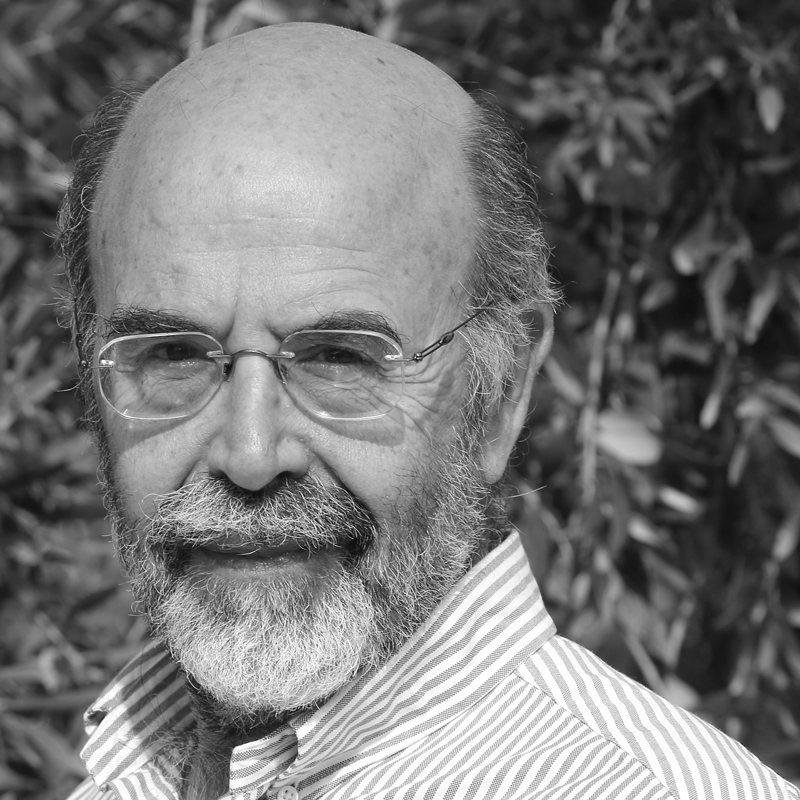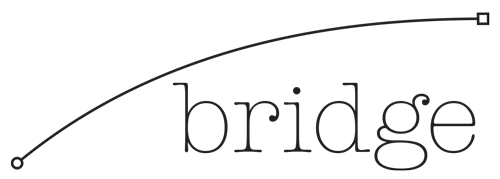A forum for discussion on the world as a social laboratory
Antonis Liakos
[the reference text of CHRONOS magazine, April 2013]
Why us? / Why ΧΡΟΝΟΣ magazine?
This online magazine comes into being at a time which coincides with Greece caught up in the storm of the first great crisis to hit the era of globalization. The crisis uncovered and enlarged all the country’s previous weaknesses. It showed how groundless and false the preceding era of prosperity had been and put an end to the fallacy that the country supposedly belonged to the “hard core“ of Europe. At once and for the first time to such an extent, the country became the centre of interest in political headquarters as well as in public opinion. However, if any past reference to Greece had usually been in context of the country’s ancient civilization, what now had become of interest was no longer its ancient heritage, but what this country is today, the causes that led it to where it stands at present, remedies through politics, popular reactions and the international consequences of the “Greek problem”.
[A NEW SOCIAL PHILOSOPHY]
When Greece was hit by the crisis, it was a country that had changed a lot during the last decades without it having been able to assimilate and incorporate these changes. Caught up in the course of European unification, from being the metropolis of a great Greek diaspora, it became a country where immigrants entered in numbers or passed through, leading to unpredictable changes that are still, to a great extent, unforeseeable. The economic crisis coupled with the measures taken to deal with it led to a rapid economic recession with rocketing unemployment at unprecedented levels. What will the corresponding social and economic consequences be and how will unemployment affect the coming generations? The policies implemented for an exit from the crisis are guided by a social philosophy that imposes violent changes on Greek society, usually in unpredictable ways. How can all this be studied and understood by us within the framework of a new reality?
[A NEW POLITICAL GEOGRAPHY]
The crisis combined with the onrush of social networking has led to yet uncharted changes in the expanding field of political exchange and in the culture of politics. Although Greece as a country has always been highly political, the combination of the crisis with the new means of communication and networking, has brought change to the ways in which the personal combines with the political. With the collapse and breaking up of the old political system, the new political forces available led to a strengthening of social polarization. The rise of the Neo-Nazi movement is what primarily caught people’s attention internationally. However, what we need to understand are the changes and reassessments that have come about in values. These do not belong to any familiar political pattern but create a completely new political geography. We live in an age where identities and relations are being reorganized and rebuilt. These are exciting moments to live in.
[A GENERALIZED CRITIQUE, A CRISIS OF CONSCIENCE and THE TELLING OF A NEW TALE]
Greeks’ relations to one another have also changed, however. The crisis provoked a general critique. Why us? What went wrong in the historical course of the country? What was to blame? Was Greece a “deviant” from the path taken by the world in general, therefore in need to be brought back on course? Were there perhaps problems in Greece common to the age of globalization but which took a particular form? What was the reason behind this? Criticism often touches upon and brings new life to old stereotypes, while self flagellation at a national level, is too frequently reminiscent of its flip side, that of an endemic national narcissism. However, such a crisis of conscience leads or will lead in future to its expression through literature, the arts, history and the pursuits of the social sciences, through essays and the new forms of expression found online. The question is whether we are able to listen to these forms of expression and compose them. The new tale about what Greece of the 21st century actually is or will become has yet to be written.
[THE NEW GREEK DIASPORA and NEW BONDS WITH THE COUNTRY]
Many educated Greeks, most of them young, go abroad where a new Greek diaspora is forming. This diaspora creates a constant and direct network with Greece, bringing a new dimension to the “Greek problem”. The role played by the older Greek diasporae in relation to Greece, is also redefined. On one hand, their revived interest in Greece creates new bonds with the country, beyond that achieved by formal and traditional channels which handled such contacts. On the other hand, they are hardly strangers to Greek problems such as immigration, recession and racism. As the crisis of Greece’s image showed in the German popular media in the summer of 2011 (Focus, Bild), it becomes obvious that current views about Greece are related to the fact that classical Greek civilization which till now acted as a shield and alibi for modern Greeks has lost its influential status in western culture. Globalization encourages cultural relativism as well as the hybridization of cultures. While Greece of today is in a state of crisis, it is also experiencing an explosion of culture. Discussions are continuous while initiative in the field of artistic creativity is escalating. In the city many fires, large and small, are being lit in the field of literature, the theatre, history, the cinema, dance etc.
[THE WORLD’S SOCIAL WORKSHOP]
All this process of redefinition and reuniting demands a common ground which however can no longer be located in the world of certainties where identities found a haven, but in critical assessment. In Greece there is a tradition of criticism which we ought to call attention to. Such criticism often started from ideas which prevailed in Europe, taking the form of comparison between the original and its parody or alternatively between that of the rule and its exception. The purpose, however, of this exercise was never the isolation of Greece from Europe or from the world surrounding it, but exactly the opposite. Our commentary, in this age of globalization, suggests that the model to be followed is not a radial relation between the metropolis and its periphery, but one of cultural transfer. Many of the structural reforms that are today applied in Europe had already been tried out in Latin American countries during the 80s, in Southeast Asia in the 90s or in other parts of the world. Greece shall set a similar example to other European countries.
The reuniting with the tradition of critique, must itself be of a critical nature. The old certainties are things of the past. There is no longer such a thing as a European social model and the European Union itself is a field of competition between rival political factions where the citizens are excluded. It seems therefore that Greek modernism resides in the field of glocal, in these combinations of the global with the local, since the one cannot exist without the other. Greece could be seen as a social workshop of our world, where a new European model is being tried out and where one can better discern the filtering between the local and the international, the exception and the rule, in our time.
[AN ORIGINAL FORUM FOR DISCUSSION]
All the above need to find a forum for discussion. This cannot be found in the mass media where the language spoken is often punishing and stigmatizing. Nor can such a forum be found where preventive censorship is implemented or independent voices are pirated. Our aim is to provide a home for all independent voices, and for ΧΡΟΝΟΣ, the new magazine, to become a privileged platform for their expression and the starting point for fruitful questioning of significant problems. The intention of ΧΡΟΝΟΣ magazine is to connect the following: different forms of artistic creation with cultural criticism, social research with political analysis, the people currently living in Greece with the new and old diaspora and discussions concerning the country with those concerning the world at large. The published articles will be interventional, well-founded and beyond the obvious, as well as reliable and aspiring to become points of reference. Even the most complicated ideas can be written simply, in a reader-friendly style, retaining their thought provoking quality. What the magazine will be aiming for is originality because a new era cannot be described by conventional means and interpretations. Lastly the magazine seeks to carry on a dialogue, one that is bold and intent on overthrowing stereotypes. Our purpose is to present points of view and not to maintain a balance of conventional opinions.

(first published in CHRONOS magazine, April 2013)
Bridge, 19 February 2017

Antonis Liakos (1947) is Emeritus professor at the University of Athens (Department of History), chair of the Board of the International Commission for History and Theory of Historiography and managing editor of the historical review Historein. Research fellow and visiting professor at the University of Birmingham (1989), European University Institute (1995), University of Sydney (1995) University of Princeton (1996, 2006), Ecole Normale Superieure (2001), member of the Board of the European Doctorate in Social History (2005-2010), of the European Science Foundation network National Histories in Europe (NHIST), and of CLIOHRES.net (“Creating Links and Innovative Overviews for a New History Research Agenda for the Citizens of a Growing Europe”). He is also member of the Advisory Board of the Centre of Advanced Studies in Sofia, and of the Network for Theory of History. Main publications: L’Unificazione italiana e la Grande Idea 1859-1871 (1995), Ergasia kai Politiki stin Ellada tou Mesopolemou [Labour and Politics in the Interwar Greece],(1993), ). “Modern Greek Historiography (1974-2000). The Era of Tradition from Dictatorship to Democracy” in Ulf Brunbauer (ed.), (Re)Writing History. Historiography in Southeast Europe after Socialism, (2004), “History Wars: Questioning Tolerance” in: Gudmundur Halfanarson (ed.) Discrimination and Tolerance in Historical Perspective, (2008), “Hellenism and the Making of Modern Greece: Time, Language, Space” in Katerina Zacharia (Editor), Hellenisms. Culture, Identity and Ethnicity from Antiquity to Modernity, (2008), “Il passato come utopia e il desiderio di storia” in Rolf Petri (ed.) Nostalgia. Memoria e passaggi tra le due sponde dell’ Adriatico, (2010). His recent books are Pos to parelthon ginetai istoria? [How the past turns to history?] Athens, Polis, 2007, Pos stochastikan to ethnos autoi pou ithelan na allaxoun ton kosmo [The Nation. How has been imagined by those who wanted to change the world?], Athens, Polis, 2006, L'Unificazione italiana e la Grande Idea (1859-1871), [The Unification of Italy and the Greek National Idea], Firenze, Aletheia, 1995, Ergasia kai Politiki stin Ellada tou Mesopolemou [Labour and Politics in the Interwar Greece], Athens 1993. He has just published the book Apocalypse, Utopia ans History. The transformations of historical consciousness, Athens 2011. Main fields of research: history of historiography, theory of history, historical culture.
Webpages:
www.antonisliakos.gr
https://uni.fairead.net/liakos-antonis
http://uoa.academia.edu/AntonisLiakos
http://www.culturahistorica.es/liakos.english.html
When Greece was hit by the crisis, it was a country that had changed a lot during the last decades without it having been able to assimilate and incorporate these changes. Caught up in the course of European unification, from being the metropolis of a great Greek diaspora, it became a country where immigrants entered in numbers or passed through, leading to unpredictable changes that are still, to a great extent, unforeseeable.
